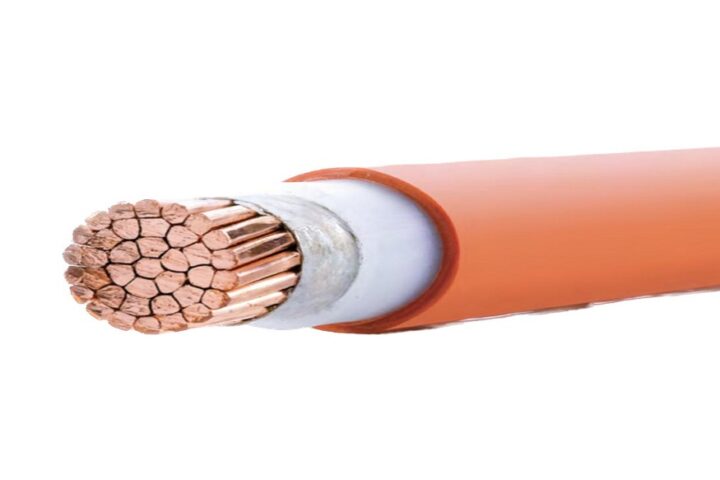In today’s world, fire safety is a top priority for commercial buildings, residential complexes, and industrial facilities. One of the critical components of fire protection systems is the use of fire-rated cables that ensure the safe transmission of power and communication during fire emergencies. But with the added cost, many wonder: are fire-rated cables worth the investment? This blog explores the cost-benefit analysis of 2hr fire rated cables and why they play a crucial role in modern safety systems.
Understanding Fire-Rated Cables
Fire-rated cables are specially designed to maintain circuit integrity during a fire, ensuring essential systems like alarms, emergency lighting, and communication networks continue to function. These cables come with different fire ratings, with 2hr fire rated cables being one of the most reliable choices for high-risk environments.
Unlike standard cables, fire-rated cables are built with flame-resistant insulation and protective layers to withstand extreme temperatures. Flat white stripe cables and TPS cables are among the options available for fire-rated applications, providing enhanced protection and compliance with safety regulations.
The Cost Factor: Are Fire-Rated Cables Expensive?
Fire-rated cables typically come at a higher price compared to standard electrical cables due to their specialised materials and rigorous testing requirements. The main cost factors include:
1. Material Composition
Fire-rated cables use low-smoke, zero-halogen (LSZH) materials and heat-resistant insulation, which increase their manufacturing cost.
2. Testing and Certification
Fire-rated cables must undergo stringent fire resistance tests to meet industry standards such as BS 6387, IEC 60331, and NFPA 70. The cost of testing and certification adds to the overall price of these cables.
3. Installation Requirements
Since fire-rated cables are thicker and heavier than standard cables, their installation can require specialised labour and additional conduit support, further increasing costs.
4. Long-Term Maintenance
While fire-rated cables have a longer lifespan, they may require periodic inspections and compliance checks, adding to the total cost of ownership.
The Benefits: Why Fire-Rated Cables Are Worth the Investment
While the initial cost may be higher, fire-rated cables provide several key benefits that make them a worthwhile investment:
1. Enhanced Fire Safety
Fire-rated cables ensure that critical systems remain operational during a fire, allowing safe evacuation and minimising damage. In contrast, standard cables may fail instantly when exposed to high heat, leading to complete system failure.
2. Compliance with Fire Safety Regulations
Many countries have strict fire safety regulations that mandate the use of fire-rated cables in high-risk environments such as hospitals, tunnels, and data centres. Using 2hr fire rated cables ensures compliance and prevents legal issues.
3. Protection of Life and Property
A major advantage of fire-rated cables is their ability to contain electrical failures that could otherwise lead to fire spread. This reduces fire damage and enhances overall building safety, protecting both occupants and valuable assets.
4. Long-Term Cost Savings
Although fire-rated cables cost more initially, they provide significant long-term savings by:
- Reducing fire-related losses
- Lowering insurance premiums due to better fire safety measures
- Minimising downtime by ensuring emergency systems continue to function
5. Versatility for Different Applications
Fire-rated cables come in various types, including Flat white stripe cables and TPS cables, making them suitable for diverse applications such as:
- Commercial and residential buildings
- Industrial plants and manufacturing units
- Public infrastructure projects
Cost vs. Benefit: The Final Verdict
When weighing the cost against the benefits, it’s clear that fire-rated cables offer greater value in the long run. While they may require a higher upfront investment, the enhanced safety, compliance, and long-term cost savings make them a smart choice for any fire-sensitive environment.
Who Should Invest in Fire-Rated Cables?
- Businesses and commercial property owners looking to protect assets and comply with safety laws
- Industrial facilities that handle hazardous materials or operate in high-temperature environments
- Builders and contractors aiming for long-term safety and reliability in electrical installations
Conclusion
Investing in fire-rated cables is not just about compliance—it’s about ensuring safety, minimising risks, and protecting lives. Whether you’re considering Flat white stripe cables, 2hr fire rated cables, or TPS cables, the key takeaway is clear: fire-rated cables are worth the investment. Their ability to withstand fire, ensure system continuity, and provide long-term savings makes them an essential component of modern fire safety infrastructure.For those looking to enhance their fire protection strategy, choosing high-quality fire-rated cables from trusted suppliers is the first step towards a safer and more secure environment.




